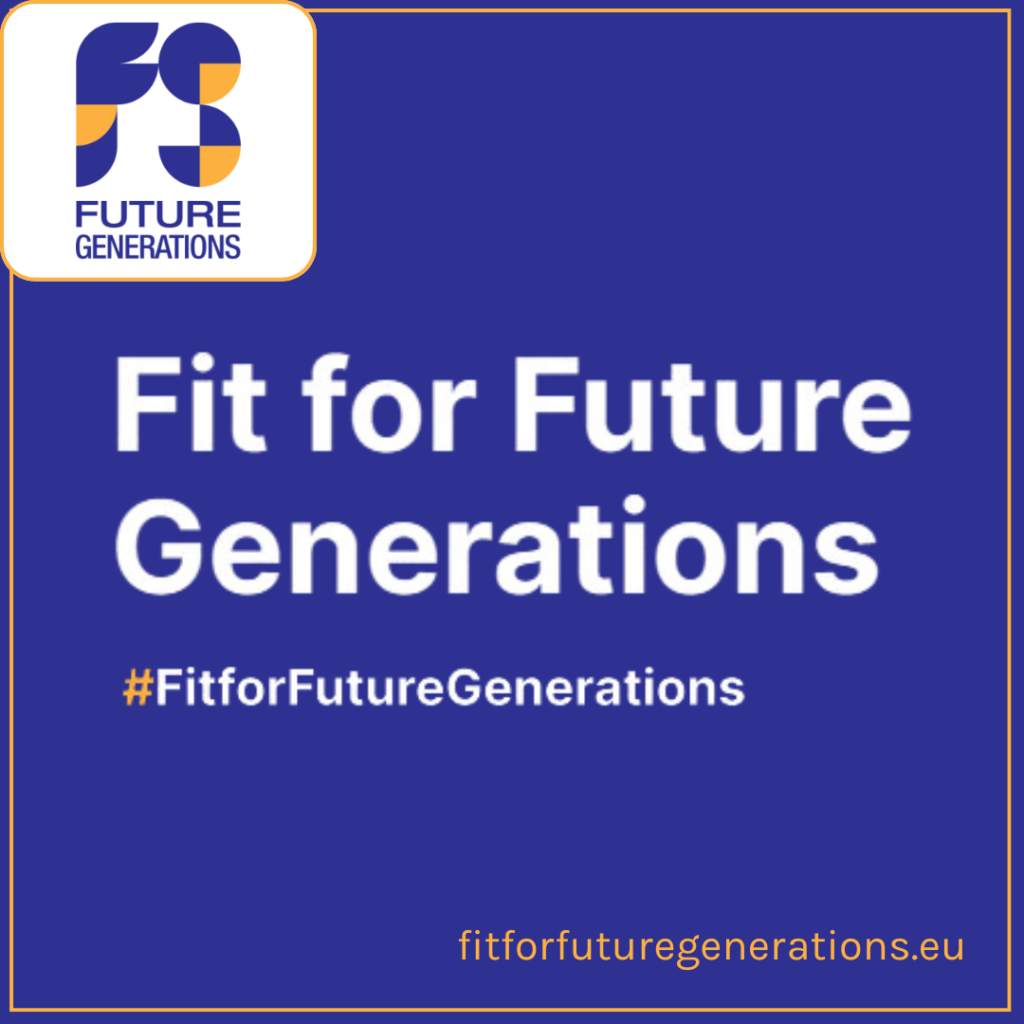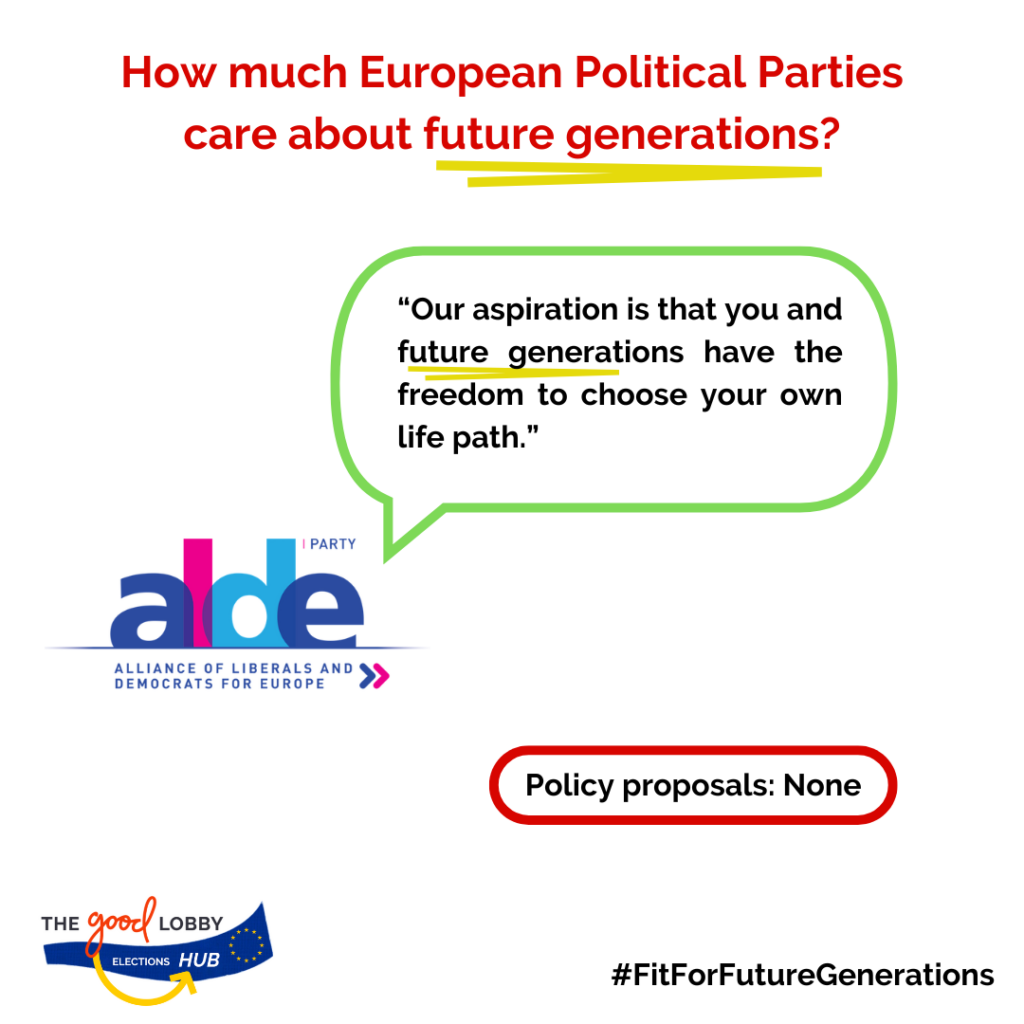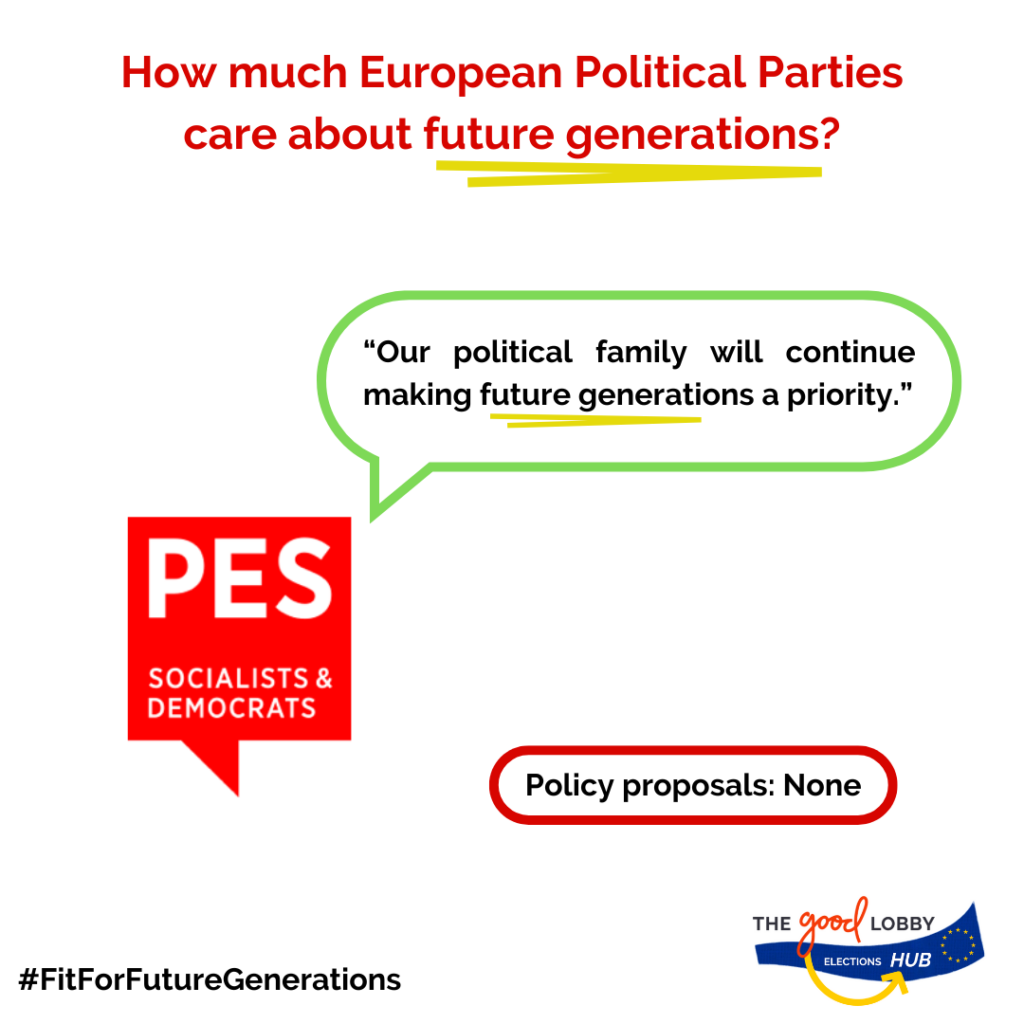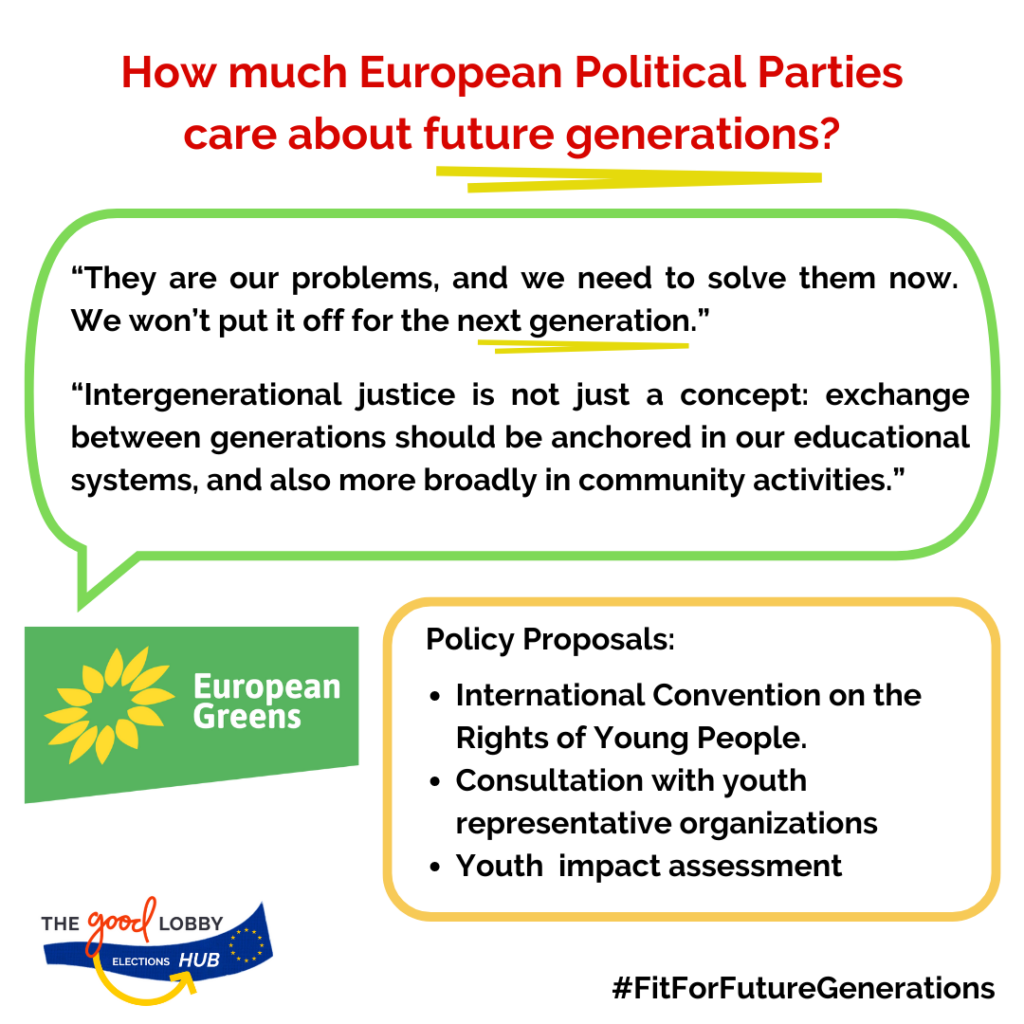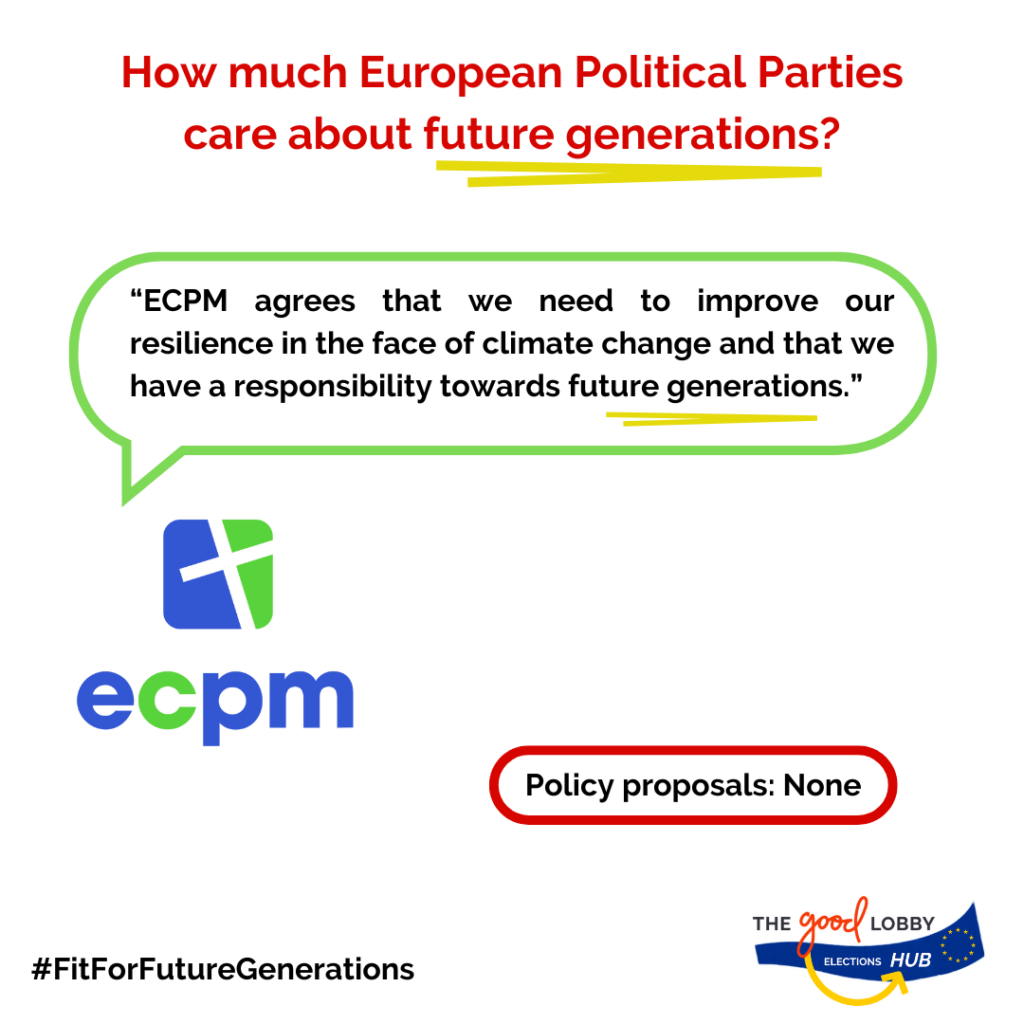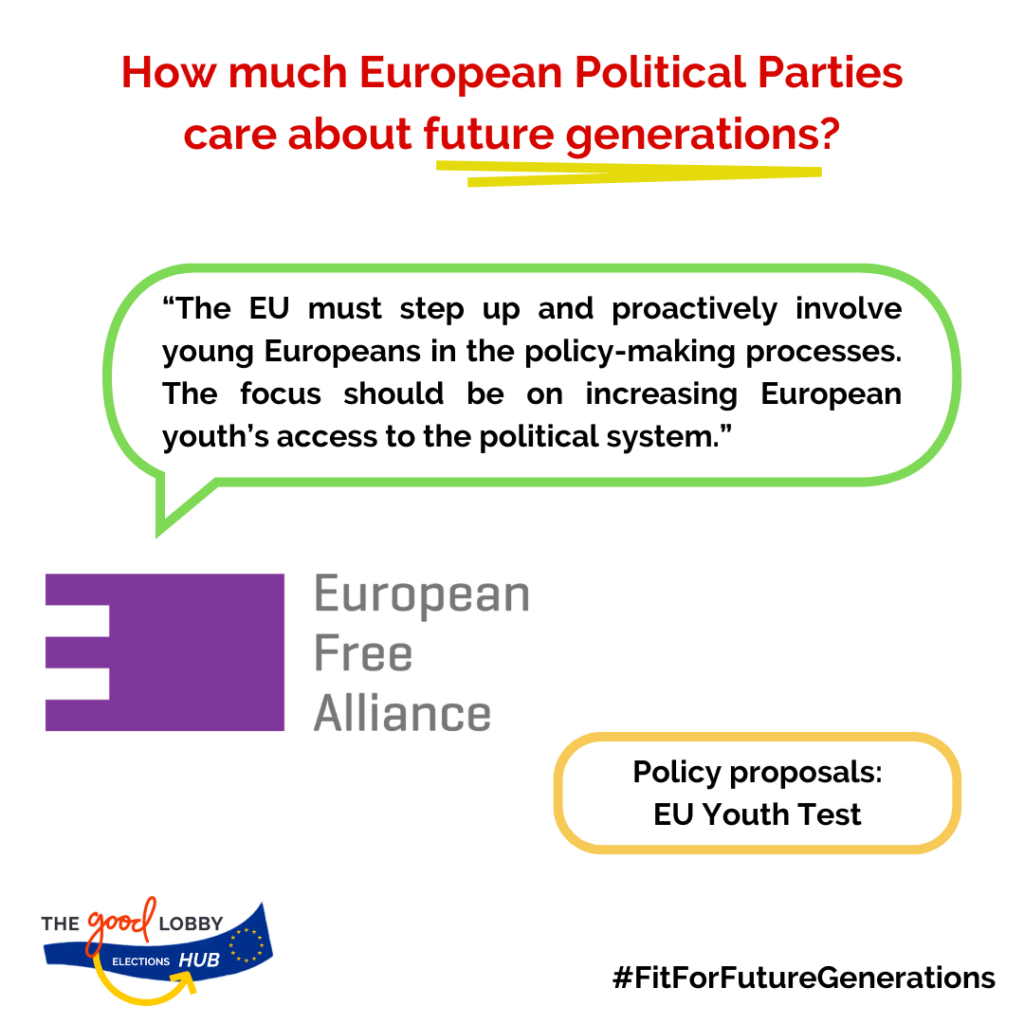The future takes centre stage in the manifestos of European political parties.
For the first time in history, virtually all their manifestos – published ahead of the EU elections – contain a reference to the interests of future generations as deemed of consideration.
From economic policies to environmental sustainability and social welfare, all Europarties aspire to prioritise the well-being of future generations in EU policy making.
The only exception is the ECR’s 2-page “Charter of Values” which, despite explicitly mentioning future generations, confines their commitment to the inculcation of undefined traditional family values.
Albeit with varying levels of commitment and depth of proposals, the Euromanifestos demonstrate a transversal intention to foster a forward-thinking approach within the EU decision-making model. Yet let’s examine:
- What’s the language used in support of future generations?
- What are the policy areas/issues highlighted in the context of future generations?
- What are the concrete policy proposals?
Let’s find it out in the table below:

General Statements: “Our aspiration is that you and future generations have the freedom to choose your own life path.”
Policy areas/issues highlighted: Pensions, Social Security, Demography.
(“Pensions and social security policies should ensure fairness to both current and future generations, through reform ensuring long term solvency in light of changing demographics and ageing populations”).
Policy proposals: None

General Statements:
- “EU legislation must work for young people.”
- “They are our problems, and we need to solve them now. We won’t put it off for the next generation.”
- “Intergenerational justice is not just a concept: exchange between generations should be anchored in our educational systems, and also more broadly in community activities.”
Policy areas/issues highlighted: Climate change, Education
Policy proposals:
- Adoption of an International Convention on the Rights of Young People.
- Consultation methods such as annual dialogues with youth representative organizations youth citizens’ agora
- Legislative impact assessments should systematically include young people.

General Statements:
- “We need a Europe that works for its young people.”
- “Our political family will continue making future generations a priority.”
Policy areas/issues highlighted: Employment, Education, Housing, Child poverty
Policy proposals: None

General Statements: “The EU must step up and proactively involve young Europeans in the policy-making processes. The focus should be on increasing European youth’s access to the political system.”
Policy areas/issues highlighted: Youth Participation
Policy proposals: EU Youth Test

General Statements:
- “The tight-knit alliance of the medium powers of Europe, joined in political integration, provides the only effective protection for our fellow citizens and for future generations.”
- “We are convinced that a European strategy to protect strategic cultural assets can preserve Europe’s cultural heritage for future generations.”
- “Culture was, is, and always will be the best asset for the future of our youth and the natural barrier against nationalist and populist ideas.”
Policy areas/issues highlighted: Europe’s cultural heritage, culture
Policy proposals: European cultural passport

General Statements:
- “We need to undergo significant social and economic transformations to reach the Paris Agreement targets and thus guarantee that the next generation will still have the right to a sustainable future on a healthy planet.”
- “Respect is about our minimum duty towards nature and towards future generations.”
Policy areas/issues highlighted: Sustainability, Environment, Climate change
Policy proposals: A new green social contract
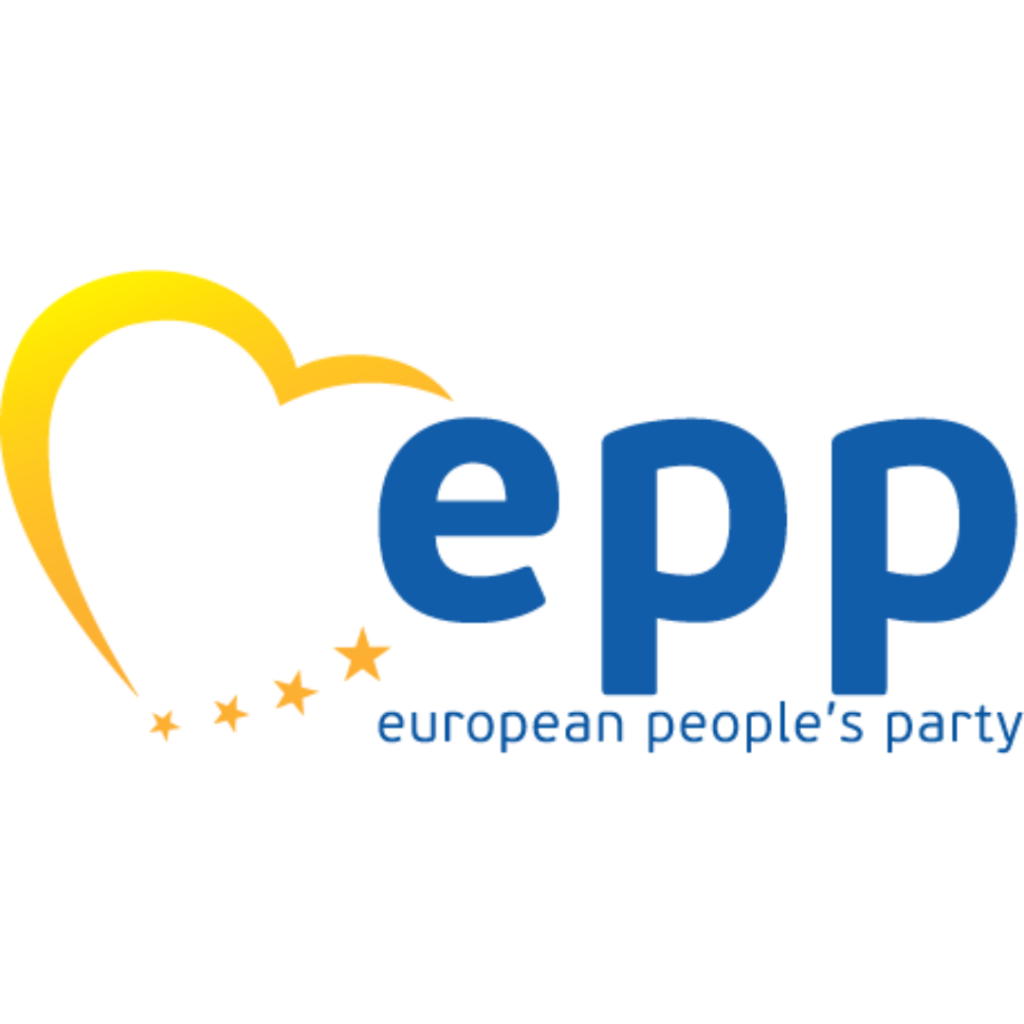
General Statements:
- “We stand for a citizens-oriented Europe that […] fosters solidarity between generations.”
- “Growth will be sustainable for us and future generations only through price stability. A sustainable economy also means that young people have a chance to effectively start their lives and build their careers.”
- “We need to speed up funding procedures for the next generation of innovators, students and civil society all over Europe.”
- “We want a new pact for intergenerational fairness, making sure our choices today do not burden the generations of tomorrow.”
- “Intergenerational solidarity is a cornerstone for our society, which supports exchanges across generations.”
Policy areas/issues highlighted: Growth, sustainable economy, employment, technologies and innovation, demographic change.
Policy proposals: Youth and elderly proof check

General Statements:
- “ECPM advocates for intergenerational solidarity, where people can take care of each other.”
- “ECPM agrees that we need to improve our resilience in the face of climate change and that we have a responsibility towards future generations.”
Policy areas/issues highlighted: Climate change
Policy proposals: None

General Statements: “We uphold the traditional family as the bedrock of society, cherishing its crucial role in nurturing future generations with love, stability and moral guidance.”
Policy areas/issues highlighted: None
Policy proposals: None

No Manifesto
From addressing climate change to promoting intergenerational solidarity, the Euromanifestos abound with statements expressing the will to safeguard the interests of future generations.
But the question is: will these aspirations materialise into effective change? Our research findings suggest that the scant proposals and tools outlined lack specificity and may not be sufficient.
The Good Lobby, together with a diverse and fast-growing coalition of civil society organisations, has crafted a manifesto aimed at ensuring the representation of future generations in the EU decision-making process.
Read the manifesto and be part of the campaign for an EU #FitForFutureGenerations.
discover more